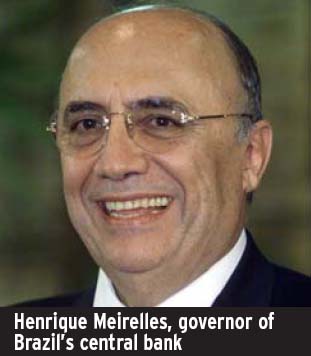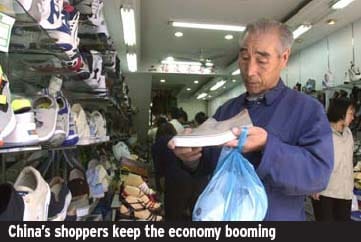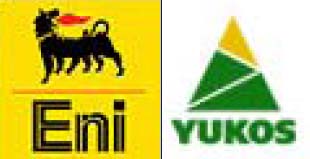Clouds Gather As Gdp Growth Eases
BRAZIL

Despite positive news surrounding Brazils economic recovery, analysts predict the boom will soon be tempered. GDP growth, likely to end 2004 at 4%-4.5%, is expected to come in at a more modest 3.5% in 2005, as a result of monetary tightening, high oil prices and a potential global economic slowdown that will not bode well for Brazilian exports. Growth will be supported by recovering income levels and new investment flows. During a Latin American tour in November, Chinese President Hu Jintao pledged up to $8.5 billion investment.
The government continues to get high marks for its economic policies.An IMF delegation recommended approval of the ninth revision of its agreement. If approved, Brazil would qualify for another $1.4 billion tranche, but is unlikely to use it. It has not made any withdrawals after recent reviews.The government does not expect to renew its IMF pact next year but vows to continue posting primary surpluses.
A frequent issuer on international capital markets in dollars, the Brazilian government has decided to launch its debut eurobond issue denominated in realssetting a new benchmark. Rumors in November were for the sovereign to come to market with a five-year deal for the equivalent of $350 million.The strategy should further boost hard currency reserves, as local currency deals will help reduce dollar debt exposure.
Not all is well for President Luiz Incio Lula da Silva, however.The governments political coalition is showing signs of deterioration, as members have threatened to withdraw over controversy surrounding central bank governor Henrique Meirelles. Political leaders are up in arms over Lulas proposal to elevate Meirelles to a ministerial level. Meirelles, currently involved in a scandal over alleged tax evasion,would receive partial immunity as a cabinet member.
Santiago Fittipaldi
|
|
|
Certainly, there is no fear that it is changing too rapidly in Russia. Ratings agency Standard & Poors reports that there has been little progress in making Russian companies more transparent and better run and that the countrys regulatory infrastructure frequently hinders, rather than supports, strong corporate governance. The agency assessed the implementation of 40 recommendations made by the OECD in April 2002 to improve corporate governance in Russia. If payment of corporate taxes is a reliable measure of corporate governance, it seems that S&P; is on the right track. Tax authorities opened investigations into 2001 tax payments by a range of oil firms and demanded that high-profile joint venture TNK-BP pay $87 million. The Kremlin appears more interested in making it appear that Yukos was not singled out for investigation than in spooking markets with a rash of tax-related inquiries that could further dampen investor sentiment. Yukos shareholders are unlikely to be appeased. In fact, Group Menatep, the core shareholder of the embattled Russian oil major, is threatening to sue the Russian government in international courts to seek compensation for the decline in value of Yukos since the Kremlin initiated its legal onslaught. Meanwhile, market rumors surfaced that Italian oil and gas giant Eni may be interested in acquiring a stake in Yukosa transaction that would need to be carefully brokered with the Kremlin. In another step in the consolidation of the global steel industry, Russian steel giant Severstal submitted a bid to purchase the assets of Ontario steelmaker Stelco, which is emerging from restructuring.
|
|
|
 Chinas retail sales hit a five-month high in October, despite government efforts to slow overheated areas of the economy. Retail sales rose 14.2% from a year earlier, to $60.2 billion, the highest rate since May. Policymakers have been struggling to prevent economic overheating in such sectors as real estate, steel and construction materials while keeping the rest of the economy on track. Apparently undaunted by the possibility of a hard landing, foreign investors are pouring money into China. The PRC attracted a record $53.8 billion in the first 10 months of this yearup 23.5% from the same period last year. The 10-month inflow exceeds total FDI for all of 2003 ($53.5 billion, itself a record at the time). Growing FDI reflects perceptions of comparative advantages for China-based operations. Not entirely surprisingly, Chinas trade surplus widened to $7.1 billion in October, heightening expectations in some quarters of a possible yuan revaluation. Exports rose 28.5% year on year, outpaced for the first time in three months by imports, which rose 29.3% year on year. China is under pressure from the United States and other trading partners to revalue its currency. They accuse Beijing of undervaluing yuan to gain a trade advantage. China has also been working with its regional trading partners in the Association of Southeast Asian Nations (ASEAN). Association members have agreed to phase out tariffs on most goods by 2010, a major step toward the establishment of a free trade area. The agreement requires China and ASEANs members to reduce tariffs on most goods to 20% or less by next year and to adhere to a phased schedule of tariff reductions until tariffs are eliminated completely by 2010. Members will be allowed to designate certain goods as sensitive and exempt them from the tariff-reduction schedule, a provision designed to mitigate concerns that some ASEAN members would be crushed by completely free trade with China.
|
INDIA
INDIAN COMPANIES SEE INCREASING CAPITAL EXPENDITURE

The Indian economy has been on a fast growth track for the past few quarters. Despite the recent poor monsoon, the latest economic growth indicators continue to look positive. More importantly, the mood in corporate India is buoyant and optimistic.
According to the half-yearly Business Outlook Survey conducted by the Confederation of Indian Industry (CII), the period from October 2004 to April 2005 is expected to show significant investment activity from domestic industry.The survey showed that 83% of the 210 companies covered across various manufacturing sectors are looking at additional capital investments in manufacturing capacities in the next six months.
This increased investment expectation from the Indian corporate sector is linked to their overall improved perspective on the business climate.Nearly 80% of the companies surveyed expect an increase in manufacturing orders, while 65% said they saw a continuation of high-capacity utilization.
Infosys Technologies, one of Indias best-known companies, is also exhibiting clear signs of optimism. Indias third-largest software exporter is launching its third and largest ADS issue yet, listing another 16 million shares on the Nasdaq.With each ADS valued at $65, the sale should raise a little over $1 billion.
Unusually, the entire issue is an offer for sale, where existing domestic shareholders will tender their shares to foreign investors; there is to be no fresh issue of capital.The aim is to increase liquidity in the Infosys ADS, which already trades at a 50% premium over the stock price in India. Currently just 8% of Infosys stock is owned by ADS holders, which will rise to 14% post issue.
Reaping the benefits of its Indian investments, GE has sold a 60% stake in its privately held Indian BPO company GE Capital International Services (GECIS) for $500 million to two private equity firms. GECIS is the single largest BPO operation in India, with more than 12,000 employees and revenues of $420 million. So far the company has been offering captive services to GE group companies worldwide. With GE cashing out a part of its stake, the company can now also offer services to other companies.
Aaron Chaze




